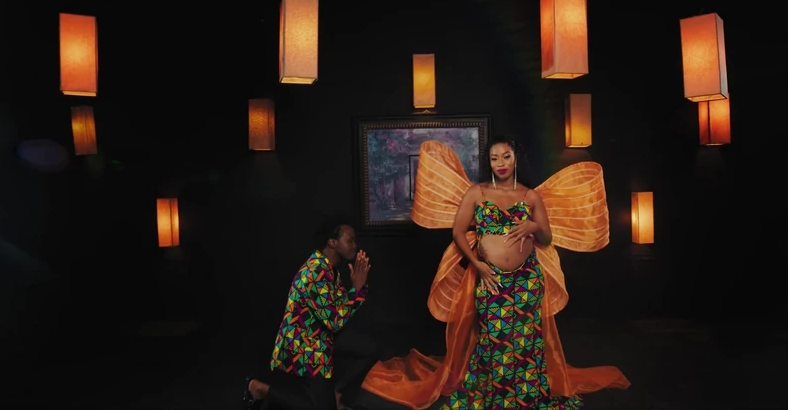
Stephen Spinelli and Tamara Acosta, the co-founders of ONEcomposer talked with OperaWire about their research and the importance of documenting the lives and work of underrepresented composers. Specifically they dive into their finding on Florence Price and the creation of the new album, “Beyond the Years,” with Karen Slack and Michelle Cann . “Beyond the Years: Unpublished Songs of Florence Price” is produced by Azica’s Alan Bise and ONEcomposer.
The album features 19 unpublished songs by Price, including 16 world premiere recordings. The album was released on July 26. OperaWire: What does “historically excluded” mean? Stephen Spinelli: Between the two of us, Tamara and I have five degrees from top music institutions – Tamara went to the New England Conservatory where Florence Price was a student, and I went to Northwestern where Margaret Bonds was a student, still neither of us knew those names, until we arrived on a campus and were charged with the task of teaching the next generation about music history through repertoire.

Our students started asking questions like “Where are the women?” “Where are the Black women?” and when you come up short on the answer it’s kind of a gut punch to realize you’re out of degrees. From here, you kind of go through all the phases of grieving you get angry, you feel guilty, and then you realize you’re you have every capacity with your well trained brain and musical ears to go do the work yourself, and so we started with that sort of task. Tamara and I linked arms and began specifically looking at factors of race and gender.
This began with the legacy of Florence Price. We discovered there’s a whole parallel timeline of amazing Black women composers (as well as other races and genders). It’s absolutely bizarre when you start reading about Margaret Bonds having her final major work premiered by Zubin Mehta and the Los Angeles Philharmonic in 1972 and you know that this isn’t in any of the history books.
From here, we went through a lot of discussions about the terminology, exclusion, erasure, and how it wasn’t a matter of oversight. This music was right there, these people were working tirelessly to try to get their music out. We have so many incredible letters from Price, she was just constantly working to get this music out and it was actively ignored.
Price says in a letter to Serge Koussevitsky, “I should like to be judged on my merit alone,” and it didn’t happen. So to us, “historically excluded” seems like the the closest definition, because it was deliberate, it wasn’t some sort of happenstance or was just overlooked because the quality wasn’t there, it was actively exclude. OW: Why Florence B.
Price? Tamara Acosta: When Steve and I were first starting this, we had decided that for ONEcomposer we were going to research one composer each academic year, and about a month in we knew there was no way, because there’s so much we could stay with Florence Price until we’re dead. There’s so much and we don’t want to just do this surface level identifying, but we want to really try to go deep into the histories, the music, the stories, and the whole picture. Historians have talked about Beethoven’s hair, yet, we just found Florence Price’s grave.
So there’s a lot of work to do to really paint the picture of this important American legacy. Steve and I have often talked about a book in a display case in the hallway of the institution where we met, and it was entitled “Bach’s Feet.” I thought, ‘Wow, we know about Bach and his feet, but we know nothing about these marginalized composers.
’ There’s so much room for new information, and this music it’s just incredible, and it’s shocking that it’s not readily out there. OW: How does ONEcomposer’s work affect the canon? TA: We need to be familiar with all musical histories and share it with our students who are really asking for it. We recognize that what we’re doing is a piece of this work, but it’s a huge amount that needs to be done and our hope is that more people will continue to do this, and more people certainly are.
We just want to add to the conversation of how much is missing from this canon. SS: I’ve become aware that the canon is what you make of it. The canon is what I program or what my colleagues program for our students and for the public, so the canon lies in our hands.
I hope that by championing incredible works of art that are so deserving of their space that we just normalize the fact that this is just more great music. It’s not different, it’s not other. Women in music are the music history.
Even though we’d like to think we’re moving beyond the issues on race and gender, they still persist. This organization is specifically dedicated to historical exclusion although, it’s inseparable from how we hope it will impact the present. Being a young white male and learning your band instrument and singing in the choir in school and every composer looks like you and has a history that reminds you of you, its creates possibilities.
My path into professional music making was cleanly and easily paved because of this. As a teacher, it becomes clear that there’s so much work to do to make a clearer path for all students who deserve to see themselves in the excellence that comes before them. They need to see the possibility.
Whether it’s in Tamara’s voice studio, or choral works and my rehearsal space, I think the representation is what’s helping to move this forward in a better direction. But, we’re always mindful that there’s so much more to be done. OW: Tell me about “Beyond the Years.
” TA: Over the past five years, Steve and I have visited all the repositories that have her materials, and have collected 147 songs (vocal pieces only). Not all of them are complete, there’s some that are partially destroyed copies and ones that end on half a page but we’ve cataloged a lot. Florence Price, we’ve come to realize that she had a very strong connection to text.
She wrote the text for some of her songs and for the “Song of Hope,” but she also celebrated poets of all types. SS: We got this sense that Price was a consumer of text and was a voracious reader. She was a serious poet herself, and was championing the stories of historically excluded poets .
There are so many poets that you won’t recognize and you read their stories and it’s clear she saw herself in these poets and vice versa. TA: For the album we have 19 songs. We presented Karen with lots of options, she’s very text driven as was Florence Price, so there was already a very strong connection there.
SS: We asked Karen what she’d like for her debut solo album and she want there to be a representation of virtuosity not just in the voice but in the piano. This album represents many sides of Price, some of the works are simple and sweet, and some of them are huge and profound. This music requires a lot of both Karen and Michelle so you really get to see them stretch their fingers and vocal cords as as performers which is really exciting.
OW: How will this album help solidify Price’s legacy? SS: We see this as a really powerful model for research. In this creative space we get to identify repertoire, artists, and materials that make for a really superlative recording project. TA: Steve and I have really tried to keep this music at the forefront in our studios on with students, with the community, and with colleagues.
Now creating these recordings that people can use as a source to take a deeper dive into who Florence Price was. It’s just continuing to round out the understanding of her as a composer I think that this album and the songs really provide a pretty broad insight into her writing. SS: Karen is coming to Ithaca College as a guest artist of Thaler concert series in October.
She’ll be doing a master class as well. She’ll be at performing pieces at Babson College in Boston, and as a Lyric Unlimited artist in residence. This music will appear in Chicago, where Price lived for the latter decades of her life, so we’ll bring this music home for Price.
Categories.














